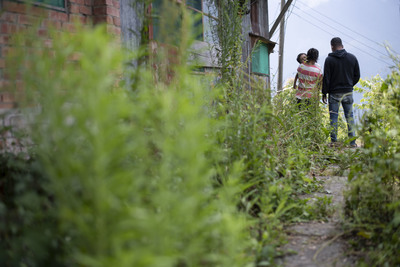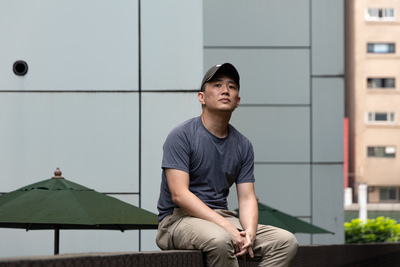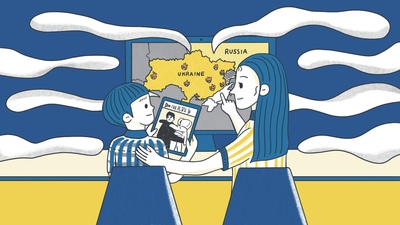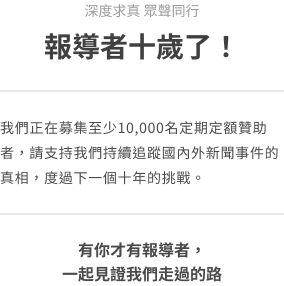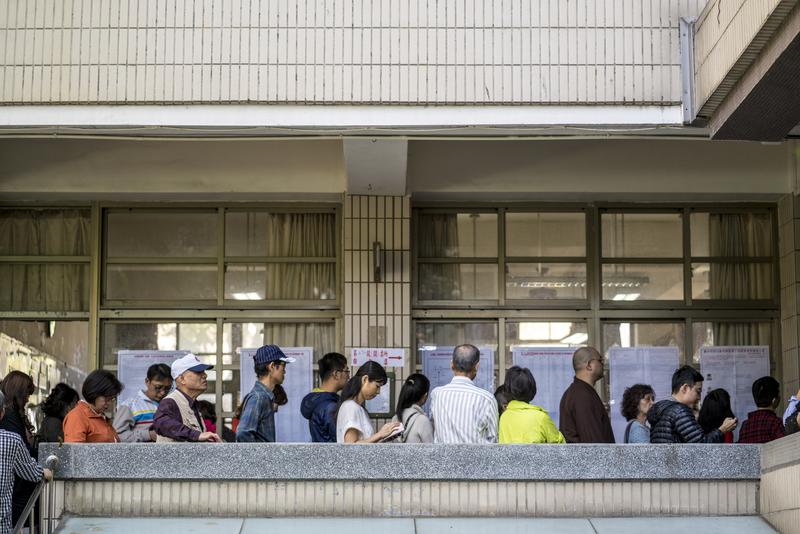
Nathan Batto, an assistant research fellow at Academia Sinica's Institute of Political Science, has researched Taiwanese politics and elections for nearly 30 years. He's viewed as the foreign scholar that best understands Taiwanese elections, and acts as an indispensable source for foreign journalists looking to get a lay of the land before voting day. He also runs the popular English-language Taiwan elections blog "Frozen Garlic."
As the vote count got underway for Taiwan's 2018 local elections, we spoke with Batto about the results and what it all means for Taiwan's political landscape.
The following interview is narrated in the first person.
For the Democratic Progressive Party (DPP), the results of this election can, of course, be seen as a crushing defeat. But I don't think the electorate was casting a vote of confidence for the Chinese Nationalist Party (KMT). It's more a consequence of swing voters dissatisfied with the DPP's time in power. This is similar to four years ago, when these same voters were dissatisfied with the KMT, and so turned to the DPP.
Some of the candidates the KMT fielded were strong enough to win the support of swing voters, but some weren't. Take Tainan for example, the DPP candidate Huang Wei-cher (黃偉哲) was elected without a hitch, but his margin of victory wasn't as significant as expected. Any voters dissatisfied with the DPP didn't plunk for Kao Su-po (高思博), the KMT candidate, but instead, voted for independent candidates. These floating voters, when given multiple options, won't necessarily give their votes to the blue camp (pro-unification parties like the KMT).
So it really is similar to four years ago. The results of the 2018 election show that those voters in 2014 didn't really support the DPP. So even though they voted KMT this year, it doesn't mean they'll continue to support them next time around.

Another trend over the past two years is the number of DPP supporters is clearly declining. This isn't anything new, the KMT faced a similar situation when they were in power, so perhaps this is simply the burden of being in office.
In fact, the grassroots base for both the blue and the green camps has loosened somewhat over the past two years. The number of voters who do not support any particular political party has increased. These are generally younger voters, whose political beliefs are not set in stone. Their votes had a great deal of influence in this election.
I think this has something to do with a change in the age composition of voters. Younger voters are less likely to have a fixed affiliation to a single party, and may feel more free to voice their dissatisfaction.
Perhaps these young people are more sensitive to changes in the general mood, or feel a sense of dissatisfaction. Their voting behaviour might reflect their immediate feelings. To an extent, the issues they care about are also different from older voters.
The most obvious example of this phenomenon is Taipei City. Ting Shou-chung (丁守中) and Yao Wen-chih's (姚文智) supporters were all slightly older, while Ko Wen-je's (柯文哲) supporters tend to be younger.
The significance of the 2018 elections results is quite different from the 2006 and 2014 local elections, and it doesn't mean the DPP are certain to lose in 2020. We should view 2018 as a warning from voters to the DPP.
I make this argument for a number of reasons. In this election, the debate in the 2018 elections was a return to local issues. Whether it be Taichung's air pollution problems or Kaohsiung's brain-drain to Northern Taiwan, the contests were all focused on local issues. There was almost no discussion about "how Taiwan will confront China" or similar national issues.
The local elections in 2014, however, did consider national issues. It was also clear at the time that in the aftermath of the Sunflower Movement, Tsai Ing-wen (蔡英文) would represent the DPP in the 2016 presidential elections. But national issues are bound to remain the focus of both the legislative and presidential contests in 2020, and there's no way to avoid the China issue. At the moment, it's a good bet that the DPP won't fare well in next year's legislative elections, but because they have a handle on national issues, they aren't likely to face a wipe-out either.
The results of the 2018 election increase the possibility that Tsai will only be a one-termer — at least it's more likely now than before the vote. The DPP need to decide who their presidential candidate will be in 2020. It wasn't a question before the 2018 election results, but it certainly is today. I'm sure the DPP is arguing about this right now.
The KMT did really well in the 2018 election, but now they need to face the question "who gets the credit for their victory?" Was this a result of Wu Den-yih's (吳敦義) role as KMT chairman? I think the party will face some internal disputes on this issue. Also, Han Kuo-yu (韓國瑜) fared incredibly well, does that mean he has a definite position within the party? Is his next step to run for chairman of the KMT? It's a possibility.
I'm still not certain that the KMT can keep this momentum going for another year. They still don't have a clear presidential candidate for 2020, which means they are in a slightly different position from the DPP in 2014. Going forward, the next few months should be interesting, both the blue and the green camps need to consider internal party disputes and start preparing for the next election.
(To read the Chinese version of this article, please click: 鮑彤看蔡政府期中考:回歸地方議題,中間選民迎頭痛擊)
深度求真 眾聲同行
獨立的精神,是自由思想的條件。獨立的媒體,才能守護公共領域,讓自由的討論和真相浮現。
在艱困的媒體環境,《報導者》堅持以非營利組織的模式投入公共領域的調查與深度報導。我們透過讀者的贊助支持來營運,不仰賴商業廣告置入,在獨立自主的前提下,穿梭在各項重要公共議題中。
今年是《報導者》成立十週年,請支持我們持續追蹤國內外新聞事件的真相,度過下一個十年的挑戰。


